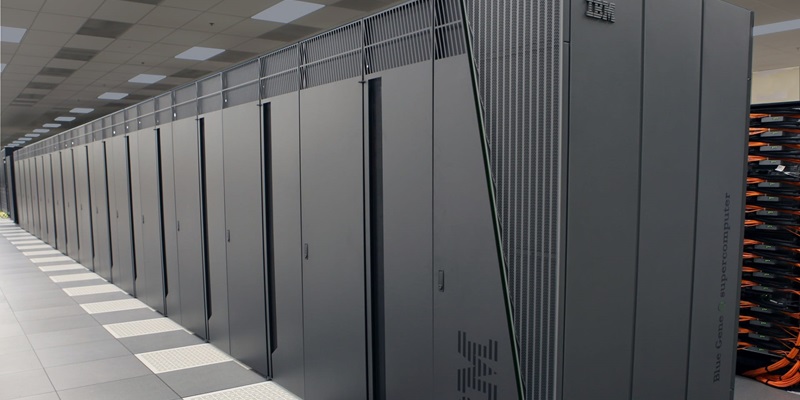LG U+, a leading telecommunications company in South Korea, has recently announced the completion of its highly anticipated second hyperscale data center, Pyeongchon 2 Center. This state-of-the-art facility is set to revolutionize the data center landscape in the country and cater to the growing demand for data storage and processing capabilities. With its advanced features and sustainable design, the Pyeongchon 2 Center sets a new benchmark for data center infrastructure.
Facility Launch and Date
LG U+ has set a target go-live date of February 2024 for the Pyeongchon 2 Center. This date signifies the culmination of years of meticulous planning, construction, and implementation efforts. Once operational, the data center will serve as a critical hub for LG U+ and its customers, offering a reliable and high-performance infrastructure for their digital operations.
Capacity and scale
With an impressive capacity, the Pyeongchon 2 Center has the capability to accommodate more than 200,000 servers. This expansive scale ensures that LG U+ can meet the surging demand for data storage and processing requirements, driven by the rapid growth in data-intensive technologies such as artificial intelligence (AI), machine learning, and big data analytics. By providing ample space for servers, the data center can efficiently handle immense workloads and enable seamless data management for businesses and individuals alike.
Construction Cost
The construction of the Pyeongchon 2 Center was a significant undertaking, with an estimated cost surpassing 300 billion won ($267.9 million). This substantial investment demonstrates LG U+’s commitment to developing cutting-edge infrastructure and solidifying its position as a leader in the data center industry. The company recognizes the critical role data centers play in supporting the digital economy and aims to provide the necessary resources to meet the evolving needs of its customers.
Size and layout
Spanning over 12 floors, the Pyeongchon 2 Center boasts a vast total floor area of 40,450 square meters (435,400 square feet). The facility has been meticulously designed to optimize space utilization and facilitate efficient data center operations. Each floor has been carefully planned to ensure seamless connectivity, effective cooling, and easy access to equipment for maintenance purposes.
Sustainable Cooling and Energy Sources
The Pyeongchon 2 Center employs innovative cooling mechanisms to maintain optimal operating temperatures for its servers. These mechanisms include the use of fans and insulation, as well as leveraging rainwater penetration for cooling and humidification purposes. By utilizing natural resources for cooling, LG U+ aims to minimize the environmental impact of the data center and reduce energy consumption.
To further bolster its sustainability efforts, the data center is powered by a combination of renewable energy sources. Geothermal energy, solar panels, and fuel cell facilities are utilized to generate electricity and ensure a greener operational footprint. The incorporation of renewable energy not only reduces reliance on traditional power sources but also significantly decreases carbon emissions associated with data center operations.
Energy efficiency and environmental impact
The implementation of energy-saving measures within the Pyeongchon 2 Center is expected to yield substantial benefits in terms of energy efficiency and environmental preservation. It is projected that the data center will save approximately 121 GWh of energy annually, contributing to significant cost savings and reduced reliance on fossil fuels. Moreover, LG U+ estimates that the data center’s sustainable practices will eliminate approximately 55,000 tons of carbon emissions every year, mitigating the environmental impact associated with traditional data center operations.
Increasing demand and significance
LG U+ CEO, Hwang Hyun-sik, underscored the importance of data centers in meeting the increasing demand driven by digital transformation and the proliferation of AI technologies. As businesses and individuals generate vast amounts of data, the need for secure and reliable storage and processing facilities becomes paramount. The Pyeongchon 2 Center reaffirms LG U+’s commitment to addressing these requirements and playing a pivotal role in the digital ecosystem.
LG U+’s other data centers
In addition to the Pyeongchon 2 Center, LG U+ already operates the Pyeongchon Mega Center, which was inaugurated in 2015. This existing data center has been serving customers’ needs and supporting LG U+’s operations for several years. Furthermore, LG U+ offers multiple colocation data centers across South Korea, strategically located to cater to diverse geographical demands.
The completion of LG U+’s second hyperscale data center, Pyeongchon 2 Center, marks a significant milestone in the company’s pursuit of excellence in the data center industry. With its expansive capacity and sustainable design, the facility is poised to be at the forefront of the nation’s digital infrastructure. By addressing the increasing demand for data storage and processing, the Pyeongchon 2 Center solidifies LG U+’s position as a leader in the telecommunications sector and reinforces its commitment to meeting the evolving needs of businesses and individuals in the digital age.

